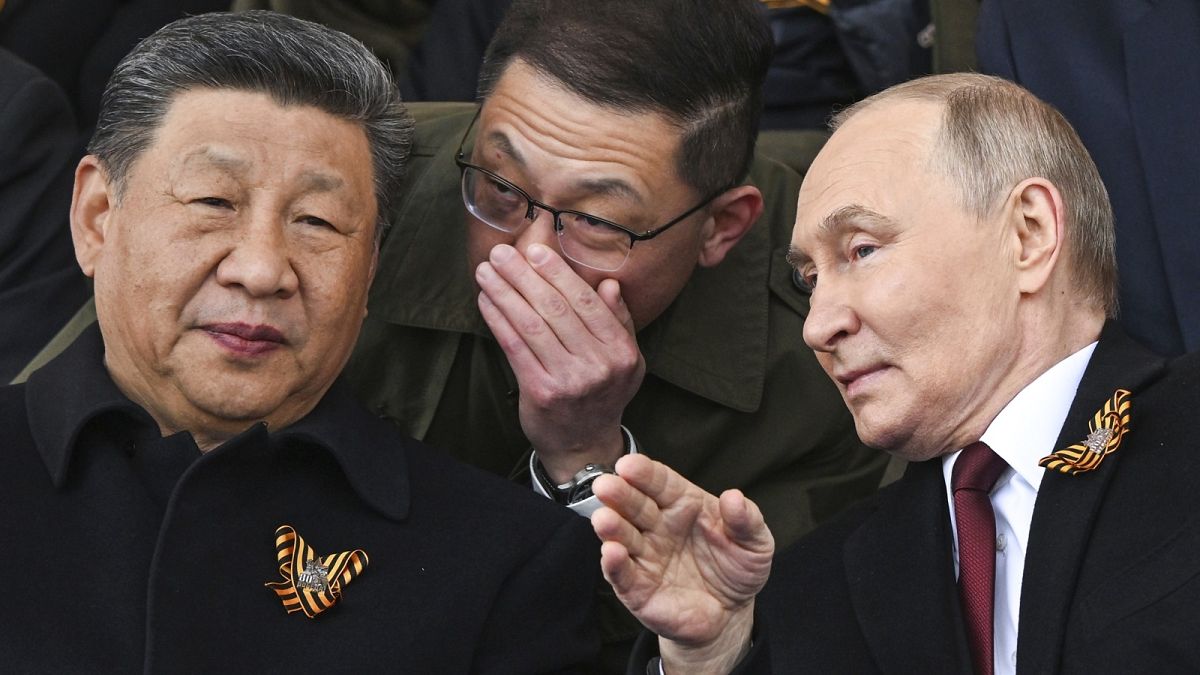The European Union should “renew and intensify” its diplomatic engagement with countries that still maintain close ties with Russia in a bid to increase the pressure on the Kremlin to accept a 30-day unconditional ceasefire in Ukraine, a group of 14 member states has said in a joint letter to High Representative Kaja Kallas.
The suggestion comes after last week’s face-to-face, low-level talks between Kyiv and Moscow envoys failed to deliver progress on the ceasefire proposal, which has been firmly backed by the “Coalition of the Willing” and the United States.
Brussels has already threatened a new raft of sanctions if Russia continues to drag its feet and refuses the truce. US President Donald Trump is expected to discuss the issue in a new phone call with his Russian counterpart, Vladimir Putin.
“It is timelier than ever to renew and intensify our engagement with our Global Partners to secure their support for this initiative,” the 14 member states write in the letter, which was sent on Monday ahead of a meeting of foreign affairs ministers on Tuesday.
“Many countries maintain close ties with Moscow, which could and should be leveraged to increase diplomatic pressure on Russia. This outreach must run in both directions and should take on board the specific situation and concerns of the countries in those regions,” they add.
Austria led the initiative. Belgium, Bulgaria, Croatia, Denmark, Estonia, Finland, Germany, Ireland, Luxembourg, the Netherlands, Slovakia, Slovenia, Spain and Sweden co-signed.
The letter, seen by Euronews, contains no specific ideas and specifies no nations. Instead, it is designed as a call for action for Kallas to “lead the way in coordinating a renewed, targeted and joint global diplomatic outreach effort” and for member states to kick-start a political discussion among themselves.
“It is crucial that the European Union takes swift and decisive action towards a renewed and coordinated diplomatic initiative aimed at building a broad global coalition in support of a full, unconditional and immediate ceasefire,” the 14 signatories say.
“Now is the time to act for a ceasefire in Ukraine in order to stop the bloodshed.”
Diplomatic reset
Although not mentioned by name, the letter appears aimed at relations with BRICS, the international organisation that comprises Brazil, Russia, India, China and South Africa.
The group, often described as a counterweight to the G7, has expanded its reach and clout to welcome Egypt, Ethiopia, Indonesia, Iran and the United Arab Emirates (UAE).
BRICS members have distanced themselves from the Western consensus when it comes to Russia’s invasion of Ukraine, calling for an end to the war but refusing to apply sanctions or curtail bilateral trade. Some BRICS leaders, like China’s Xi Jinping, Brazil’s Lula da Silva and Egypt’s Abdel Fattah el-Sisi, attended Vladimir Putin’s 9 May parade in Moscow, which Brussels decried as a propaganda event to justify its aggression.
This position has regularly frustrated Europeans, who see the impact of unprecedented sanctions dented by continued circumvention enabled by Russia’s allies. China, in particular, has been accused of supplying 80% of dual-use goods to Moscow.
“China is the key enabler of Russia’s war. Without Chinese support, Russia wouldn’t be able to wage the war in the amount that they are waging it,” Kallas said last month.
Still, the EU has gradually moved towards a realpolitik approach to explore economic and political opportunities with countries in the Kremlin’s orbit, hoping the rapprochement would convince them to adopt a harder line.
Last year, Brussels concluded a mammoth trade deal with Mercosur, which covers Brazil, Argentina, Paraguay and Uruguay, and intends to do the same with India by the end of 2025. Trade talks are also ongoing with Indonesia and the UAE. A summit between the EU and South Africa took place earlier this year, with a focus on energy and investment. Another high-level summit was hosted with Central Asian countries.
More recently, Trump’s sweeping tariffs are fuelling speculation of an impending reset in EU-China relations, which Russia’s war has plunged to an all-time low. The bloc appears increasingly willing to overlook Beijing’s “no-limits” partnership with Moscow to guarantee alternative markets to compensate for America’s protectionist policies.

